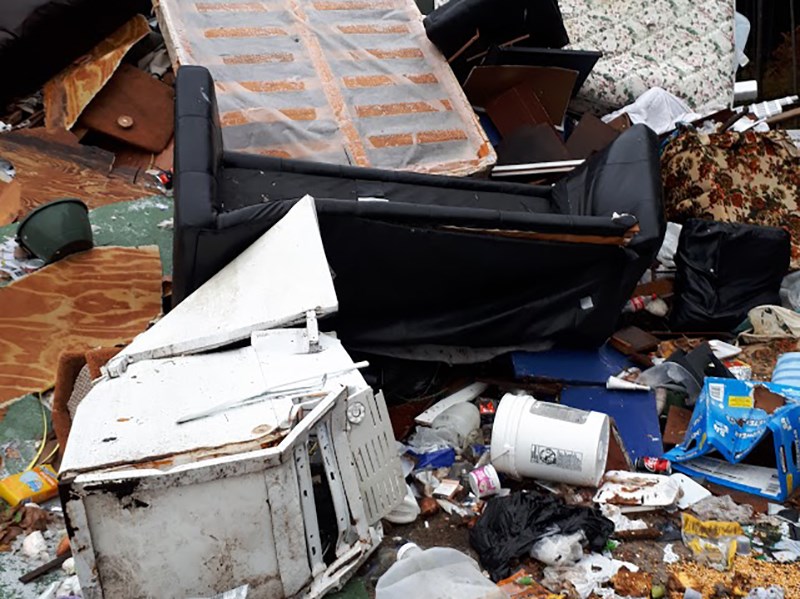What is waste, anyway? An outdated full spice jar we kick to the curb? The busted toaster we send “away?” The doll with the lazy eye we believe is not suited for the thrift store?
It’s true we often seem to define waste as the things in our life we no longer see as useful, but what if we redefined waste as unused resources? How might that change our habits?
Would we begin to see untapped value in our trash can? Would food scraps be seen as future soil, newspaper as egg cartons, beer bottles as, well, beer bottles, and building supplies as a great find for someone doing renovations?
One person’s trash is often another person’s treasure. And, after a few weeks of being on-site at our local transfer station, Let’s Talk Trash got an up close and personal look at all the treasures we are throwing away. Brand new doors, clothing with tags still attached, inlay tabletops, a box full of porcelain dolls, food still in its packaging, and heaps of recyclable coffee cups were all among our region’s so-called trash.
When time and opportunity allowed, some items were salvaged, but more often than not they were headed for burial. Our regions’ landfill is about 700 kilometres to the south, in Washington, where all of our trash gets entombed in a mass grave. Buried in this anaerobic environment, trash creates methane – known to be at least 25 times more potent a greenhouse gas than carbon dioxide.
Sorting out compostables, recyclables, refundables and items that can be reused or donated results in our garbage going on a serious diet. We can actually lose about 70 per cent of our waste overnight. And with every resident, babies included, contributing to an average of 460 kilograms of waste per person per year, that’s 322 kilograms of potential resources going to waste.
The most effective way to reduce our waste is to compost. Backyard composting is the most local option, but there is also a free compost drop-off program at the Town Centre Recycling Depot for all to take advantage of. Big bulky items such as furniture or electronics can be sold online or donated to thrift stores to further reduce our landfill impact.
Beyond that, recycling opportunities abound locally. Depots accept paper, cardboard, emptied containers, plastic bags, household batteries, styrofoam packaging and more. A new bylaw restricting recycling from the trash can serve as an extra motivator for those slow to get onboard, but really, it’s about tuning into our connection to the limited resources of the one planet we all share.
Let’s Talk Trash is qathet Regional District’s waste-reduction education program.



